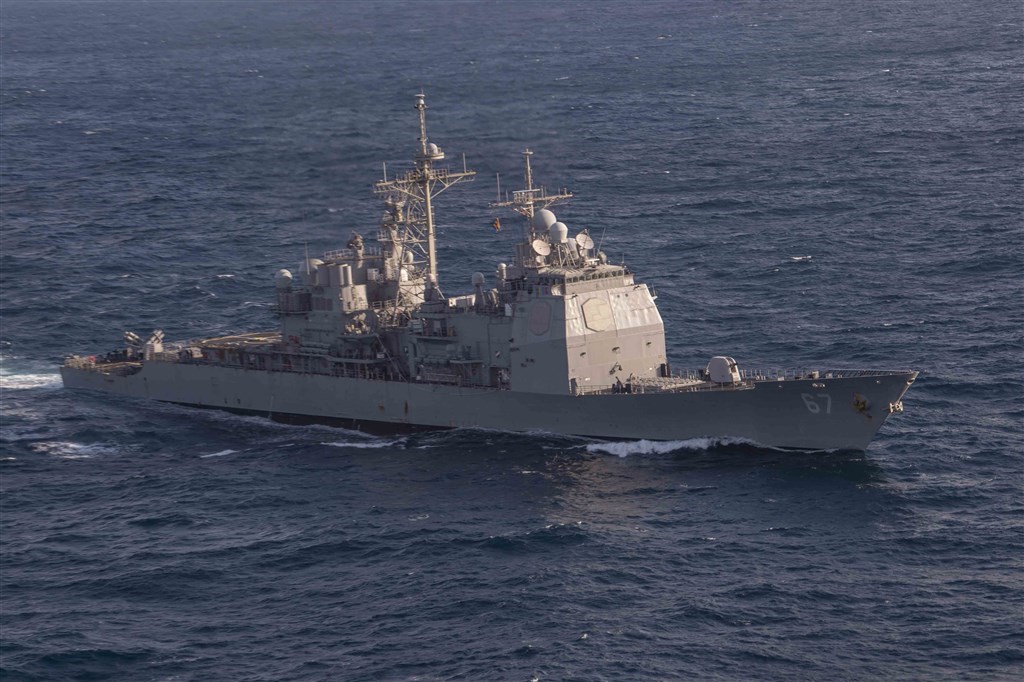By Emerson Lim, Chiang Chin-yeh, Su Long-chi, Wang Yang-yu and Yu Hsiang

Taipei -- Taiwan's Ministry of National Defense (MND) and the U.S. 7th Fleet confirmed Friday that a United States warship recently sailed through the Taiwan Strait, less than one week after Taiwan's 2020 presidential and legislative elections.
The move was interpreted by some Taiwanese lawmakers as a warning to Beijing.
The transit happened Thursday with the U.S. warship approaching southwest of Taiwan and sailing north through the Taiwan Strait, a MND statement said Friday.
The MND did not identify the U.S. military vessel but said it was conducting "normal" navigation operations and Taiwan's Armed Forces fully monitored its movement.
Joe Keiley, spokesperson of the U.S. 7th Fleet, confirmed the transit in response to a query from CNA.
"The Ticonderoga-class guided-missile cruiser USS Shiloh (CG 67) conducted a routine Taiwan Strait transit Jan. 16 in accordance with international law," Keiley said in a statement.
"The ship's transit through the Taiwan Strait demonstrates the U.S. commitment to a free and open Indo-Pacific. The U.S. Navy will continue to fly, sail and operate anywhere international law allows," he said.
The USS Shiloh is a forward deployed Ballistic Missile Defense Cruiser stationed out of Yokosuka, Japan.
The vessel's transit through the Taiwan Strait came five days after Taiwan's 2020 presidential and legislative elections, in which President Tsai Ing-wen 蔡英文, who ran for reelection, and her Democratic Progressive Party (DPP) won a landslide victory.
Following the elections, many foreign and domestic analysts predicted that Beijing is likely to increase pressure on Taiwan, with the flexing of military muscle a possible option.
Meanwhile, Taiwan legislators expressed different views on the U.S. warship's transit through the Taiwan Strait.
DPP lawmaker Tsai Shih-ying 蔡適應 said the transit showed Washington's support for Taiwan's democratic process, adding that the U.S. action provided a sense of security for the Taiwanese people.
Another DPP lawmaker Lo Chih-cheng 羅致政 said the timing of the transit could be read as the U.S. telling China not to overreact to the results of Taiwan's election, as Beijing has issued harsh statements over the past few days.
Aucun commentaire:
Enregistrer un commentaire